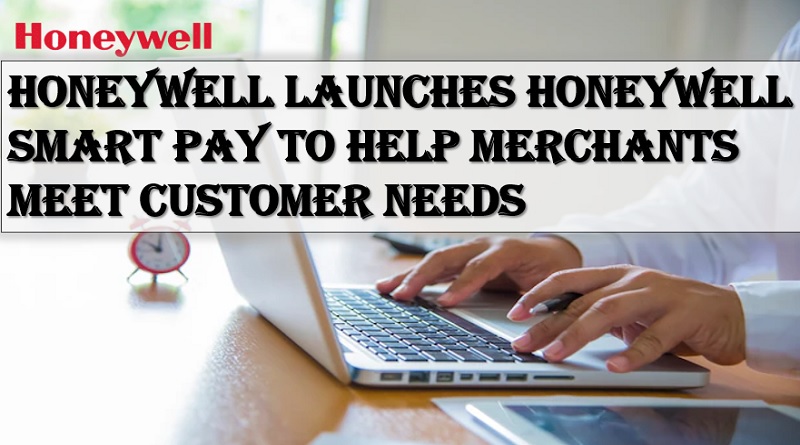NEWS
Featured News
Trending News
AFTERPAY SHUTS MONEY APP, ENDS DEAL WITH WESTPAC
Australian fintech Afterpay has announced that it will be closing down its Money app in October just a year after launching, saying that the firm’s acquisition by Jack Dorsey’s Block “means our focus is shifting in a new direction”.
Debit cards and Money accounts from the fintech company were introduced in collaboration with the largest bank in Australia, Westpac. In October 2020, Afterpay became the first customer to sign up for Westpac’s banking-as-a-service (BaaS) platform. The cooperation has finally come to an end with Money’s shutdown.
According to the information posted on Afterpay’s website, the company will stop accepting new users right now, and as of October 10, 2022, customers won’t have access to their Money accounts.
“Our decision to move in this new direction is due to our exciting next chapter with Block, particularly as we think about Cash App opportunities here in Australia,”
Lee Hatton, the lead executive of Money by Afterpay.
Afterpay has instructed users to withdraw all of their funds from their accounts as part of the closure process. The firm has also established a daily payment limit of AUD 10,000, which can be increased upon request, according to the company.
In order to “prevent unsuccessful repayments,” it has also requested that consumers delete their Money cards from their Afterpay buy now, pay later (BNPL) accounts.
Following Money’s exit from the market, Block, which bought Afterpay in January for $29 billion, plans to introduce its own Cash App in Australia.
“A change of ownership naturally sees partnerships evolve and we have been working co-operatively with Afterpay on this transition to ensure a smooth customer pathway,”
Westpac BaaS CEO Damien MacRae.
BINANCE AND MASTERCARD LAUNCH PRE-PAID CRYPTO CARD
In partnership with Mastercard, crypto giant Binance is launching its pre-paid card offering cryptocurrency “rewards” on customers’ purchases.
As a result of the cooperation, Binance will launch its cryptocurrency debit card in Argentina, making that nation the first in Latin America to do so. The Credencial Payments-issued Binance Card enables customers in the area with a legitimate national identity document to make purchases and settle debts using cryptocurrencies.
The new service gives customers an easy method to buy bitcoins without having to pay fees or go through the occasionally challenging exchange onboarding procedures. The card also comes with no annual charge and no foreign transaction fees, as well as access to exclusive deals with particular retailers.
The Binance debit card functions exactly like any other bank card, with the exception that it is connected to a crypto wallet rather than a mobile banking app.
Through the Binance Card App, Binance customers may add money to their cards and instantly convert their cryptocurrency holdings to fiat that can be used at more than 90 million Mastercard retailers globally. As a result, there is no direct connection between the card and the platform’s user account.
Holders of a Binance card can receive up to 8% in cryptocurrency cashback on qualifying purchases and are not charged any fees for ATM withdrawals. When funding the card balance, customers can choose in advance which digital wallet they want to debit. Currently, the latter can only store two digital currencies: Bitcoin and BNB, the native token of Binance.
The Binance Card quickly converts cryptocurrency into other fiat currencies when a cardholder makes a payment and automatically subtracts any fees and commissions—which have not yet been disclosed—from the total.
“We can unlock the full potential of blockchain technology when we make it easier to access + easier to use. One way we do that is by bringing crypto to everyday purchases. To make that a reality, we’re working with Binance to let people to use their crypto to make purchases at 90m+ stores that accept Mastercard,”
Michael Miebach, CEO, Mastercard.
Specially created crypto cards are more common and very well-liked because they enable users to withdraw their digital assets and use them at millions of credit card-accepting businesses worldwide. The inability to utilize cryptocurrencies in daily life with the same ease as conventional currency is one of the biggest limitations of cryptocurrencies, however, these cards address this issue.
Latin America is the fifth-most bitcoin-adopting region in the world, and it consistently accounts for 8% to 10% of all cryptocurrency activity. Over the past two years, the use of cryptocurrencies in the area has multiplied by ten. Leading the pack in Chainalysis’ 2021 Global Crypto Adoption Index are Venezuela and Argentina, which are ranked seventh and tenth, respectively.
INCOMM PAYMENTS SELECTS BILLINGPLATFORM FOR ITS PROVEN ABILITY TO HANDLE COMPLEX BILLING SCENARIOS AND LARGE VOLUME OF TRANSACTIONS
BillingPlatform, the enterprise monetization platform for today’s innovative business models, today announced that
InComm Payments, a leading payments technology company, has selected BillingPlatform as its enterprise billing solution. InComm Payments chose BillingPlatform for its flexible data model, modern and intuitive interface, and the ability for non-technical users to configure the system to support the unique billing needs of InComm Payments’ diverse and growing business.
InComm Payments, headquartered in Atlanta and present in over 30 countries, provides enhanced end-to-end payment platforms and emerging financial technology solutions that assist businesses in a variety of industries, including retail, healthcare, tolling, and transit, incentives, mobile payments, and financial services. The company has over 525,000 distribution points, 420 global patents, and 1,000 global brand partners.
“As an industry leader and technology innovator, we have a clear vision for enabling the future of payments across a range of industries and use cases – a future that we realized also needed a more modern and automated billing system to power it after reviewing our accounting and business processes,”
“After researching multiple market options, BillingPlatform stood out as the ideal solution for InComm Payments based on its easy-to-use interface, scalability, and ability to handle our complex pricing and billing requirements.”
Dean Thompson, Senior Director, Financial Information Systems at InComm Payments.
BillingPlatform is the only enterprise billing and monetization solution on the market that enables enterprises to monetize any type of product offering, from simple subscriptions to sophisticated usage-based pricing models and everything in between, with global customers serving multiple industries including communications, transportation, media, and entertainment, retail, finance, and software. BillingPlatform supports the entire quote-to-cash process, all on a secure, next-generation cloud platform. The platform’s unrivaled flexibility gives organizations complete control over how they differentiate in the market, maximize profitability, decrease operating expenses, and improve the customer experience.
“Continuous innovation and creativity have been the hallmark of InComm’s success for the past three decades,”
“With our industry-leading, cloud-based platform approach, along with our ability to handle sophisticated usage-based data and high transaction volumes, we are excited to partner with InComm Payments on the next stage of their digital transformation.”
Dennis Wall, CEO at BillingPlatform.
RIPPLESHOT ANNOUNCES PARTNERSHIP WITH RISK INTELLIGENCE LEADER FLASHPOINT TO MORE PROACTIVELY COMBAT CARD FRAUD FOR FINANCIAL INSTITUTIONS
Rippleshot, a provider of proactive fraud detection and prevention solutions to payment processors and financial institutions, announced today a partnership with Flashpoint, the globally trusted leader in actionable intelligence, to pair Rippleshot’s compromised and high-risk merchant data and insights with Flashpoint’s Payment and Credit Card Fraud Mitigation solution.
Rippleshot’s cloud-based solution, which is equipped with features such as AI/ML, automation, and data-driven strategies, uses a data consortium of over 4,500 financial institutions and is updated daily. Financial institutions may use Rippleshot’s precise data and solutions to improve their existing fraud prevention methods, detecting compromised cards, data breaches, and high-risk merchants while saving time and costs.
Card Fraud Mitigation from Flashpoint assists fraud teams in detecting compromised credit cards from criminal communities and data breaches, as well as identifying high-risk merchants before fraudulent transactions occur or multiply. Rippleshot enhances Flashpoint’s ability to identify stolen cards as well as particular businesses that have been hacked. This enables financial institutions and card issuers to detect card fraud more proactively, identify prospective card fraud victims and problematic merchants, and reduce fraud loss.
“Flashpoint is a market leader in delivering intelligence that provides a detailed view into what cybercriminals in illicit communities are seeing,”
“By pairing that with Rippleshot’s compromised and high-risk merchant data, this partnership will equip the industry with unparalleled financial intelligence to react much more quickly to instances of verified card fraud and proactively stop further damage from fraudsters.”
Canh Tran, Co-founder, and CEO, Rippleshot.
“Common Point of Purchase (CPP) analysis is a notoriously complex process for fraud teams,”
“The integration of Rippleshot’s high-risk merchant data into our platform increases the speed and scale of identifying potential fraud across CPP. This means teams have the analysis, across multiple financial institutions, completed for them so they can focus on preventing fraud from occurring.”
Matt Howell, SVP of Product at Flashpoint.
VESTTOO AND CLEAR BLUE ANNOUNCE A $1 BILLION PARTNERSHIP
Vesttoo, a leading insurance risk transfer platform, announced that it had signed a partnership agreement with Clear Blue to supply the latter with reinsurance capacity sourced from capital markets investors, totaling a sum of $1 billion USD.
Vesttoo’s mission is to bridge the gap between insurance and capital markets by growing insurance-linked investments as a source of reinsurance capacity. Vesttoo will use Clear Blue’s underwriting, program management, data, and analytical capabilities, in addition to its AI-powered technology and expertise in fintech, insurance, and asset management, to facilitate faster reinsurance transactions and allow more investors to gain access to a diversified portfolio of Clear Blue’s P&C risk on an efficiently collateralized basis.
“Clear Blue are as data-driven as we are, and together we can grow the pot efficiently,”
“We will use Clear Blue’s data in our models to help structure transactions with much faster time to market, all the while maintaining transparency which is critical to investors, leading to greater participation in the insurance-linked investment market.”
Alon Lifshitz, Chief Financial Engineer and Co-Founder of Vesttoo.
Vesttoo has grown quickly over the years, providing reinsurance capacity to cedents using its data-driven AI technology, which allows it to model, price, and create flexible solutions for a diverse variety of business lines. Vesttoo’s data-driven tools enable the company to organize transactions in a variety of financial instruments in a timely and transparent manner.
“We’ve been working with Vesttoo for years, and their methodology has proven itself time and again,”
“Their data-driven process is able to radically speed up the reinsurance process, allowing us to provide insurers with the capacity they need to thrive.”
Jerome Breslin, President and CEO of Clear Blue Insurance.
Vesttoo intends to broaden its coverage to include other dangers in the Life and P&C sectors. Furthermore, it is working on digitizing the transaction-making process in order to work on larger scales. The agreement with Clear Blue is a significant step toward this larger goal.
COVALTO TO BECOME MEXICO’S FIRST US-LISTED FINTECH FOLLOWING SPAC MERGER
Mexican SME-focused digital banking platform Covalto is set to go public via a merger with special purpose acquisition company (SPAC) LIV Capital Acquisition Corp.
The new combined firm will be known as Covalto, and it will be the first Mexican fintech to be listed on a US stock exchange.
The merger is worth $547 million to Covalto and will create up to $177 million in the capital before costs.
LIV Capital will also provide $60 million in funding for the purchase, allowing the company to continue its growth trajectory, extend its product portfolio, and hunt for M&A prospects in Mexico and Latin America.
Covalto, formerly Credijusto, is a “one-stop solution for SMEs,” offering credit products, banking services, and a comprehensive suite of business analytics solutions to thousands of firms.
“Due to limited innovation and the outdated technology of incumbent banks, SMEs in Mexico are insufficiently integrated into the modern banking system and are not able to fully access the world’s growing digital economy.
“We built Covalto to address this challenge and unlock the potential of Latin American SMEs via digital banking and credit solutions.”
David Poritz, co-CEO, Covalto.
Covalto was the first Mexican fintech to purchase a regulated bank last year, giving the company direct access to Mexico’s interbank payment system and dramatically decreasing its funding costs.
LIV Capital raised $114.5 million in its first public offering on February 7, 2022, with the goal of combining with a technology company in a “high-growth and underdeveloped market in Mexico.”
“The convergence of financial services and technology is driving disruption in the Mexican market, and Covalto is at the forefront of this trend.”
Alex Rossie, Chairman & CEO, Covalto.
NEW BANK LAUNCH PROMISES TO BOOST THE UK PROPERTY SECTOR
The property sector across the UK is set for a £3bn boost as specialist bank GB Bank officially launches after receiving its full UK banking license.
The Middlesbrough-based GB Bank is now able to go forward with its ambitious plans thanks to the banking license. It has agreed to lend £3 billion over a five-year period. More than 100,000 jobs, 20,000 new houses, and several million square feet of office space will all be supported by the investment.
The bank will provide a variety of fixed-term saving solutions with competitive rates, which will help savers as well. Savings are also covered by the Financial Services Compensation Scheme (FSCS) for up to £85,000, and the money will go directly toward community improvement projects in the area.
“We are absolutely delighted to officially launch GB Bank! I’m incredibly proud of the entire team’s hard work, which has enabled us to achieve the fantastic milestone of securing our full UK banking license. Everyone at GB Bank is raring to go and can’t wait to see, first-hand, the positive impact GB Bank will make to the communities across the UK.”
Stephen Lancaster, CEO of GB Bank.
The revitalization and expansion of local communities are at the core of GB Bank’s lending strategy. It will pledge to hire local expert advisors, promote local employment opportunities, and generate positive effects in communities across the UK that need them the most while offering affordable, customized property development loans with reasonable fixed interest rates.
“GB Bank is bringing something truly unique to the market, and it’s hugely rewarding to know the future of communities across the UK will directly improve due to our work. The funding will build new homes and offices to reinvigorate communities and create jobs supported by secure and competitive saving accounts.
“GB Bank is only the second UK bank to launch this year, which demonstrates how incredibly challenging launching a bank is! The team deserves huge credit, and we are excited about what the future holds.”
Paul Rippon, Chairman of GB Bank.
The pillar investor in GB Bank is The Teesside Pension Fund (TPF). To support the bank’s expansion aspirations, as well as its mission of promoting economic growth and reinvesting in local communities, it has invested £48 million.
“I am extremely pleased to welcome the launch of Teesside, Darlington, and Hartlepool’s first homegrown bank. The launch of GB Bank is a huge step forwards in levelling up our region and truly represents the ambition of our area.
“The headquarters in Middlesbrough’s Centre Square is already bringing good-quality, well-paid jobs. By bringing the bank’s HQ to Middlesbrough, it shows that you don’t have to leave the place you love and call home to forge a rewarding career in finance and professional services.”
Ben Houchen, Tees Valley Mayor.
The lending will benefit local real estate developers, small and medium-sized businesses, and construction firms. GB Bank will offer property development loans between £500,000 and £5 million.
“Developers are facing numerous challenges such as increasing material costs, access to land and difficulty sourcing and retaining labour. We are helping by working with them to provide quick lending decisions to better enable them to commit to purchasing land, providing competitive fixed interest rates so they can more accurately calculate funding costs together with providing connections to a property ecosystem with local, professional advisors.
“All our loans are tailored to individual developers’ needs and requirements. The Relationship Managers and Credit Partners are based locally meeting with the developer early in the development appraisal to ensure their needs are identified. This local decision-making ensures that the developer is quickly and efficiently supported throughout their lending journey. We have a real passion for the region and look forward to putting that knowledge and enthusiasm into supporting regional communities that need it most.”
Neil Williams, Chief Lending Officer at GB Bank.
GB Bank is a new specialist bank headquartered in Middlesbrough which was granted its full UK banking license on 16th August 2022.
FORAGE RAISES $22M FROM NYCA PARTNERS, PAYPAL VENTURES, AND INSTACART FOUNDER
Forage, a payments processor that makes it easier for grocers to accept SNAP EBT payments online, announced today that it has raised a $22M Series A funding round to accelerate online grocery access for America’s 42 million SNAP EBT recipients. The round was led by fintech specialist firm Nyca with participation from PayPal Ventures, EO Ventures, and prominent angels including Apoorva Mehta, founder of Instacart. Forage will use the funds primarily for product development and accelerate hiring to meet the high demand for the company’s solutions.
“This capital will help accelerate Forage’s mission to democratize access to government benefits. We’re proud of the technology we’ve built and are excited to expand the acceptance of SNAP EBT payments online for low-income Americans.”
Ofek Lavian, co-founder and CEO of Forage.
Eight percent of Americans rely on government assistance to pay for their groceries. Only a small portion of the more than 250,000 brick-and-mortar businesses that receive SNAP benefits through in-store EBT has been given approval for online EBT. Many SNAP beneficiaries are housebound, don’t have access to transportation, or reside in areas where grocery stores are difficult to reach. Many others choose to avoid in-person shopping because they are worried about COVID. During the pandemic, many Americans were able to switch to online food shopping, but SNAP beneficiaries were not able to take advantage of this security and convenience because they are in fact unable to utilize their benefits online.
EBT and payments specialists, including former Instacart and Freshop personnel, work for Forage in-house. Along with its standalone EBT solution, Forage also created and just released the first Shopify app, which provides online EBT payment processing to Shopify’s community of businesses. To speed up its transition to accepting SNAP EBT online, the company is already collaborating with hundreds of reputable supermarkets.
“Forage is tackling a critical problem for consumers and merchants as more groceries are bought online,”
“Nyca is excited to back the incredible team on their mission of making it as easy for eligible merchants to accept EBT as any other form of payment.”
Tom Brown, Partner at Nyca Partners.
In order to increase the number of merchants accepting EBT online and, ultimately, the number of SNAP recipients, Forage offers businesses support through every stage of the USDA approval process, from compiling the necessary papers through system engineering and testing to implementation.
Expense management platform Teampay expands partnership with Mastercard, raising $47 million
In 2016, Andrew Hoag, a former senior executive at Verisign and web project manager at NASA’s Ames Research Center, founded Teampay, a platform that attempts to automate the software purchasing process for businesses. Hoag’s idea is that the way companies spend their money is changing, especially as they embrace digital transformation, and visibility and control of spending are becoming increasingly important with these changes. ups and downs of the economy.
Looks like his thesis was correct. Today, Teampay has hundreds of customers and significant venture capital funding. This morning marks the closing of a $47 million Series B ($35.25 million, $11.75 million in debt) of the Fin Venture Capital-led firm with participation from Mastercard, Proof Ventures, Trestle and Espresso Capital, bringing Teampay’s total raised to $65 million. Hoag said the new money will be invested in expanding Teampay’s partnership with Mastercard and growing the company’s sales and marketing activities. Last year, Teampay launched a Mastercard-branded corporate card, Catalyst, with expense management features, signaling the startup’s intention to venture deeper into the hot corporate card space.
“Today, companies care more than ever about where every dollar goes, which requires a new perspective,”
“In today’s economic environment, Teampay’s software-led approach has proven resilient — as we saw in late 2020 to 2021, when the economy rebounds, Teampay benefits disproportionately through accelerated growth … We increased our debt facility for additional flexibility in uncertain times.”
“Enterprises crave control and visibility over the finances, and this not only helps the IT department, but [also] enables all departments to make better aligned business decisions,”
Andrew Hoag, CEO, Teampay.
Teampay’s platform provides a workflow for employees to submit and approve expenses. Using it, managers can implement policies that automatically collect approval or disapproval of expenses belonging to certain categories. Teampay integrates with existing chat tools and provides real-time reporting, automates invoice processing, and offers virtual cards that can be limited by vendor and quantity.
In recent years, venture capitalists have poured money into enterprise expense management, lured by promises of low returns.
In January alone, European startup Moss, which provides credit cards to small and medium-sized businesses, raised $86 million. Spendesk raised $118 million in July 2021 for its enterprise expense management service. And in April, Ramp, which offers both business cards and expense-tracking software, secured $550 million in debt and $200 in equity at a valuation of $8.1 billion.
According to Dealroom, more than $2.8 billion was invested in enterprise expense management companies in 2021. This year, $1.6 billion was invested from January through May alone.
“Some teams are still stuck with a legacy, reactive mindset anchored on how businesses handled spending when purchasing was centralized,”
“With education and innovation, we look forward to bringing best-in-class ‘consumerized’ tools to the finance department.”
Andrew Hoag, CEO, Teampay.
Mastercard’s plans can be a bit vague, and Hoag is reluctant to disclose even a rough estimate of Teampay’s finances, including annual recurring revenue. But the total addressable market is certainly large enough to support more than one vendor – Grand View Research estimates its size at $15.9 billion by 2021.
In a smart industry analysis on Dealroom, Lorenzo Chiavarini writes that horizontal differentiation — for example, expanding into adjacent services like payment processing and targeting underserved segments — will play a key role in the management of the company. Some of this is already on Teampay’s roadmap, such as developing the company’s accounts payable solution and expanding its cross-border payment functionality.
The challenge, however, will be to stay motivated in the face of fierce competition from the likes of Brex, Divvy, and Bill. com-owned Airbase, and incumbents like Concur and Expensify. FinVC partner Peter Ackerson added in an emailed statement:
“We’ve seen Teampay’s significant traction and are excited to lead this Series B round. Spend management is still an outdated area and we believe Teampay’s platform is ideally positioned to be based on it. strategic importance in terms of long-term cost management for the CFO’s office.”
Andrew Hoag, CEO, Teampay.
Teampay, based in New York, now has more than 100 employees. The goal is to increase that number between 5% and 10% by year-end, Hoag said, averting unforeseen market turmoil.
HUNTINGTON NATIONAL BANK LAUNCHES INVESTCLOUD’S NEW FIND MY ADVISOR EXPERIENCE
InvestCloud, the global leader in financial digital transformation, today announced that Huntington National Bank has launched Advisor Connect, a branded digital experience based on Find My Advisor’s technology. InvestCloud. Huntington is a subsidiary of Huntington Bancshares Incorporated (Nasdaq:
HBAN), a $179 billion regional bank holding company headquartered in Columbus, Ohio.
Retirement savings, insurance worries, and financial planning can seem overwhelming without a financial advisor who understands your unique needs. Huntington now offers Advisor Connect, a digital platform that makes it easy for clients to find and contact the right Huntington financial advisor. After answering a few questions, users will see a personalized list of advisors whose interests and areas of expertise match their financial needs, personal interests, and preferences for remote or online collaboration. they are next.
“Connecting our customers with the right advisor is essential to providing an outstanding experience for our customers,”
“Our partnership with InvestCloud delivers on our vision to be the leading ‘people-first, digitally powered’ bank and puts the customer at the centre of the experience.”
Michael Robinson, Huntington’s Director of Wealth Management.
Find My Advisor is an API-based service that was created in conjunction with Huntington and smoothly integrates into an existing online banking experience. It makes the process of picking an advisor simple by using questions that you may customize and logic. Simply respond to a few questions about your current financial situation, long-term objectives, personal and charitable interests, and preference for in-person or virtual meetings to receive a customized list of advisors from Huntington Private Bank or Huntington Financial Advisors, a Huntington affiliate. Wealth managers and financial organizations, like Huntington, can strengthen current client connections with Find My Advisor while assisting clients in making plans for and achieving their long-term financial and investment objectives.
“Developing empathy with a client for effective communication and planning—either in person or digitally—is a must for any wealth manager,”
“So being able to connect the right client to the right advisor is essential for long-term, multi-generational retention. Find My Advisor, the InvestCloud app behind Advisor Connect, does just that, helping to secure clients and convert them at scale.”
“This app also speaks to how we approach innovation at InvestCloud,”
“We work hand in hand with our clients to develop the precise functionality they need and in a way that works seamlessly with the brand. We’d like to thank Huntington for going on this journey with us.”
Will Bailey, chief strategy officer at InvestCloud.
The ever-growing collection of more than 300 digital apps by InvestCloud, including Find My Advisor, can be configured in countless ways to provide clients with more customized and simple user interfaces. Through InvestCloud X, the solution is currently accessible to wealth managers everywhere.
Singapore and UK strengthen their FinTech partnership
The UK and Singapore have agreed to a new MoU boosting FinTech trade and cooperation at the 7th Financial Dialogue in Singapore hosted on 25 November.
The Fintech Bridge expands on a 2016 agreement that will lower barriers to FinTech trade by initiating new, routine discussions between businesses and regulators in addition to previous areas of cooperation. This will boost collaboration and information sharing about new developments in the FinTech industry. For the UK and Singaporean FinTechs, it will also lower trade barriers, enhancing growth and investment opportunities.
“The UK and Singapore are among the world’s leading jurisdictions for fintech investment – and today’s announcement will only accelerate growth and innovation in our respective sectors. The MoU we’ve announced today is crucial – and I would like to thank the Monetary Authority of Singapore for their constructive engagement throughout discussions.”
Andrew Griffith MP, Economic Secretary to the Treasury.
“Innovate Finance welcomes this announcement. A MoU between UK and Singapore will deliver a strengthened framework for vital regulatory and policy discussions between the two countries, enable innovation across financial services, and ensure businesses based in both the UK and Singapore have the ongoing support for their ambitions for growth to be realised.
We look forward to supporting future financial dialogues and business to business activity between these markets. We are also delighted to be working with the key organisations engaged to promote the opportunities this FinTech bridge has to offer, and to welcoming FinTech businesses to IFGS and UK FinTech Week next year.”
CEO of Innovate Finance, Janine Hirt.
“The UK and Singapore are two of the world’s most dynamic and innovative FinTech markets. The FinTech Bridge will drive exciting new opportunities and greater alignment of regulatory approaches will help with the expansion of FinTechs from the UK and Singapore into each other’s markets. Greater cooperation between government, regulators and industry will boost innovation and drive better outcomes for customers.
This MoU will also further deepen the engagement and opportunities between two of the premier international financial and related professional services centres.”
Miles Celic, Chief Executive Officer, TheCityUK.
The UK and Singaporean fintech industries are now closely aligned on a regulatory level thanks to the Regulatory Cooperation Agreement that was signed in 2016. The most recent commitment goes further in a number of ways, highlighting opportunities in each other’s markets, outlining the business support available to firms, and establishing a direct connection between the issues facing firms and policy discussions.
Honeywell launches Honeywell Smart Pay to help merchants meet customer needs
Honeywell has announced the release of Honeywell Smart Pay, a contactless software payment solution enabling the company’s powerful mobile to become secure and compliant payment terminals, accepting contactless mobile payments from anywhere a business sells or delivers goods and services.
Honeywell Smart Pay gives sales associates and service workers the ability to complete on-site payments in retail, package delivery, public transportation, and other businesses that may use the payment. mobile math.
With a chip-enabled credit card or a mobile phone that supports contactless payments, any employee with a Honeywell cell phone, including the CT30 XP and CT40 XP, can accept payments from consumers used in the field or in-store, thereby improving the customer experience and providing a seamless transaction experience with greater security and flexibility of payment options.
“Effortless check-out and the delivery of specialized customer service can help create loyal customers and make lasting impressions,”
“We designed Honeywell Smart Pay with the goal of helping merchants make consumer purchasing faster, easier and secure – making the customer experience better.”
Taylor Smith, CTO of Honeywell Productivity Solutions and Services.
More and more people are using cards and digital wallets for in-store purchases instead of cash. The Federal Reserve notes that by 2021, only one in five consumers will want to pay directly in cash. Salesforce recently reported that 83% of consumers are already using contactless payments, and 65% of customers plan to use contactless payments more in the next three years.
For merchants, traditional mobile point-of-sale (mPOS) accessories that mount on a mobile device incur recurring lifetime costs for card reader hardware and the cost of encryption keys for payment processing. payments, when ‘they are combined, will compete with the cost of mobile computers alone, nearly doubling the total initial cost of mobile payments.
The point of sale of Smart Billing software eliminates these additional costs and the bulk and weight of accessories while protecting customer data. The software solution was designed in collaboration with leading billing and consulting software provider Amadis, a software provider that has been deployed on more than 40 million mobile devices worldwide.
“Honeywell Smart Pay incorporates sophisticated secure code and anti-tampering technology with Amadis’ proven card processing and security software essentials, providing a secure payment acceptance services solution,”
“This technology emulates in software the physical secure platform and tamper detection employed on traditional payment terminals to maintain the high level of security compliance demanded by payment networks to assure safe retail payments.”
Emmanuel Haydont, CEO and co-founder of Amadis.
With additional regional card brands coming in 2023, Honeywell Smart Pay will support significant credit cards that account for more than 85% of global transaction volume.
ClearBank reaches profitability as revenue climbs to over £45m
Embedded banking provider ClearBank Ltd generated £45.4 million in revenue in YTD to October 2022, reaching monthly profitability for the UK-based bank.
When compared to the same period in 2021, FinTech’s revenue has nearly tripled. Increased transaction volumes, new client sales, interest revenue, and the expansion of its FX and multicurrency proposition are all contributing factors to the growth.
Financial institutions and FinTechs can offer regulated financial products and services to their customers without the expense and complexity of building it themselves thanks to ClearBank’s single API cloud-native Embedded Banking platform.
The business has had success working with established financial service providers, FinTechs, mid-market players, and emerging e-money institutions.
“In the last few years, we have seen the market shift from agency banking services to BaaS and now Embedded Banking driven by the demand from institutions and increasingly brands to integrate sophisticated and regulated financial services into their customer offerings,”
“With a licensed clearing and Embedded Banking platform that is scaling rapidly, we expect to build on the success of 2021, and our accomplishments thus far in 2022, ahead of expansion into Europe in 2023 and the US soon after. The market is coming to ClearBank.”
Charles McManus, CEO at ClearBank.
A £175 million strategic investment spearheaded by Apax Digital, the growth equity division of Apax Partners LLP, was announced by ClearBank in March 2022. The round also included participation from the company’s current investors, CFFI UK Ventures (Barbados) Ltd. and PPF Financial Holdings BV. The company’s profitability in 2022 has increased due to growth and expansion, a strong client pipeline, and a growing deposit base.
Wise issues first eco card
Wise, the global tech company building the best way to move money around the world, has today launched its first eco card.
The environmental impact of the Eco-Wise Card has been significantly reduced through the use of Polylactic Acid (PLA), a sustainable plastic alternative made from renewable bio-resources such as inedible corn. . The material choice is not only more durable than plastic, it does not release toxic gases when burned.
Wise’s design also significantly reduces ink usage, as demonstrated by the card’s plain white design and small “fast flag” logo. With modern card validation moving to tokens and most of the necessary information available through apps, the information printed is as minimal as possible. The result is no signature sheet, PAN number, CVV, expiration date or Visa hologram. The Visa logo is printed on the back and in addition, there is a notch on the card to make it easier for the blind to use.
The delivery envelope is made from reusable fiberboard and also uses minimal ink. Wise has replaced the usual packaging details with a QR code on the website where customers can find more information. The Eco Card costs a total of £9 for new customers (Wise’s regular Green Card costs £7 for new customers). Existing customers can upgrade to a new card for £4.50 (replacement green cards cost £2.50 for existing customers). A green card is still an option for customers, but they now have the option of choosing a white card instead. New and existing Wise Account customers in the EU will be able to order the card.
“We always speak to our customers before launching new products to the market, and they were very clear they wanted the option of a more environmentally friendly card.
Some people can go completely plastic-free, using our digital cards and Apple / Google / Samsung pay, but we know that some people might still need to spend with a physical card. Ultimately, it comes down to choice, and we want to make sure we can offer our customers what they want, now in a more sustainable way.
At Wise, we’ve been carbon neutral since 2020 and are committed to being net zero by 2030. We aim to measure our footprint as comprehensively as possible, reduce that footprint as much as possible, and offset and remove that which we can’t reduce.”
Nilan Peiris, Chief Product Officer at Wise.
Nium launches closed-loop payments solution for airlines, OTAs
Singapore-based fintech Nium has launched a closed-loop payments solution, Nium Airline Payments (NAP), powered by Universal Air Travel Plan (UATP).
NAP aims to provide airlines, travel agents and online travel agents (OTAs) with a sustainable and fair closed payment model that seeks to end harmful surcharges and The no-accept policy restricts companies that are notorious for inflating B2B travel costs.
Nium Airline Payments (NAP) solution and what it means
According to the information provided in the company press release, the technology for this solution is being made available to Nium through the acquisition of Ixaris, a travel payment optimization company in 2021. Nium’s first deals for this solution were Air Europa, which sought to partner with the payments company to address the inequalities associated with traditional card payment models, known today. come with travel agency offers and OTA financial incentives that hit the bulk of an airline’s profits.
Building on this knowledge, Nium Airline Payments’ closed-loop solution aims to remove profit-consuming intermediaries from the payment stream, seeking to provide airlines with the flexibility and control to set up Design transparent incentives for OTA partners. Depending on the route, seasonality and volume of business, among others.
Nium’s process is supposed to ensure payment acceptance for airlines, as they are set up to accept payments over the UATP network. In addition, the process complies with IATA Resolution 890 and is registered with the IATA TIP (Transparency in Payments) program.
Delivering these capabilities, the solution allows companies like Air Europa to benefit from significantly reduced cost-per-payment, faster checkout times and flexible merchant incentives, all without the need for additional technical integration.
Speaking about the contract with Air Europa, Nium officials said they are eager to work with the company to solve one of the biggest challenges in air distribution, which is increasing distribution at a fraction of the cost. accept high payment fees or restrict distribution to partners that offer better payment terms but reduce the overall sales opportunity.
The product news marks the latest developments in Nium’s evolution of B2B payment solutions for the travel industry (including not only airlines but also hotels and agencies). travel, among others), offers virtual credit cards (VCCs), real-time ‘pay, pay’ in over 100 currencies for 190+ countries, as well as crypto solutions.
PayZen Raises $220 Million Growth Round for Personalized Healthcare Affordability
PayZen, the fintech company tackling healthcare affordability with personalized, no-cost patient financing solutions, has raised a $220 million growth round to strengthen its leadership position as it pioneers the new category of Affordability Financing.
The round is composed of $20 million in equity financing and a $200 million credit facility. The oversubscribed equity component was led by 7wireVentures, while Viola Credit provided a $200 million warehouse credit facility to support continued market expansion. This latest investment round reflects the significant and rapidly accelerating industry demand for PayZen’s affordability financing platform since it was introduced last year.
PayZen, a fintech business with a healthcare focus, has seen monthly revenue growth double since its latest round in November 2021, and it anticipates that trend to continue as a result of growing market demand.
As interest in its platform grows among health organizations looking to address the problems with patient payments, PayZen will use the funding to build up operations and product development.
To meet the rising demand for its products from healthcare providers, PayZen has dramatically increased the size of its current warehouse facility. Due to escalating healthcare expenses, approximately one in ten adults have severe medical debt, therefore this expansion gives the company the opportunity to directly and significantly enhance the financial well-being of millions of U.S. healthcare consumers.
“This exciting round is a testament to PayZen’s product innovation and the immense need for more affordable payment options for patients who are trying to pay their medical bills,”
“Healthcare equity and affordability is a foundational problem in the U.S. Too many Americans have delayed or foregone getting the care they need because they aren’t offered an affordable way to pay. At PayZen, we’re determined to help fix this broken system.”
Itzik Cohen, co-founder and CEO at PayZen.
After taking part in PayZen’s Series A round last year, 7wireVentures, a well-known powerhouse in health-tech venture capital investments, Viola Group, a top investment group with a technology focus, and SignalFire, the first venture capital firm created from the ground up as a technology company, are building on their initial investment. All other current investors, such as Link Ventures and Picus Capital, also took part.
Lee Shapiro, co-founder and managing partner at 7wireVentures, will join PayZen’s board as a result of the most recent financing. Shapiro has more than 20 years of expertise in the healthcare industry, having served as president of Allscripts and, most recently, as chief financial officer of Livongo, which he helped guide from conception to an $18.5 billion acquisition in 2020 and its initial public offering (IPO).
“With medical debt being the leading cause of bankruptcies in the U.S., and with so many people without the cash available to meet emergent health needs, there is a pressing need for a solution to address this challenge,”
“PayZen is directly aligned with our beliefs at 7wireVentures in the importance of using technology-enabled services to resolve the hassles consumer face in accessing health and care. We are honored to work with this great team on this important mission.”
Lee Shapiro, co-founder and managing partner at 7wireVentures.
In 2023, PayZen will further its goal of providing all Americans with customized, cost-effective, and free payment choices, building on its technological base to become the embedded finance platform of the healthcare sector.
Hospitals and health systems should get in touch with PayZen if they wish to increase patient payment alternatives while also increasing revenue and cash flow.


















